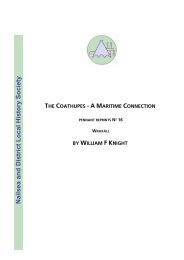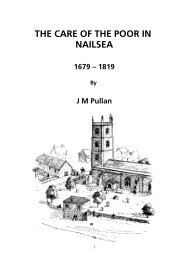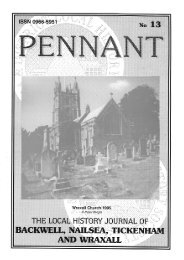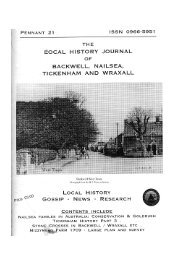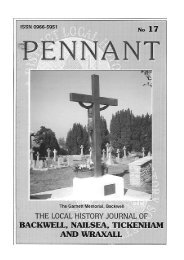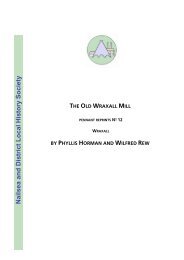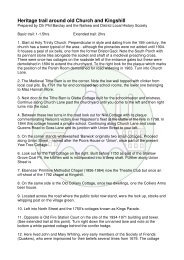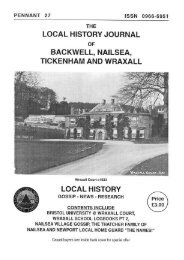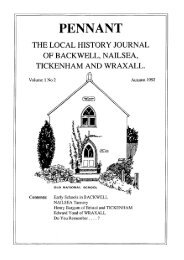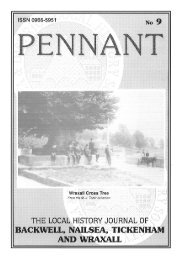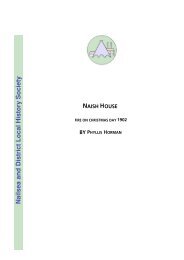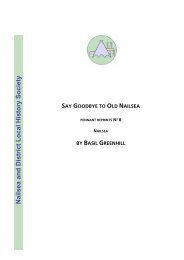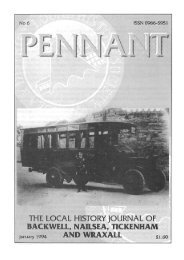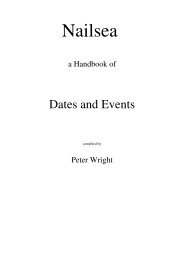No 15 - Nailsea and District Local History Society
No 15 - Nailsea and District Local History Society
No 15 - Nailsea and District Local History Society
You also want an ePaper? Increase the reach of your titles
YUMPU automatically turns print PDFs into web optimized ePapers that Google loves.
The old rules, written in beautiful copperplate, dated January1906, have been hanging in the belfry at St. Andrew’s Backwellsince those days, bearing the signature of the rector of the time,the Revd. E.S.S. Caudwell, but a few years ago the ringersdecided to renew the frame, <strong>and</strong> to our surprise <strong>and</strong> good luck,discovered behind them the previous set, dated October 31 st1901, agreed <strong>and</strong> signed by the previous rector <strong>and</strong> localeminent historian Prebendary Edward Burbidge. Both sets ofrules give a good insight on how jealously the ringers guardedtheir privileges, bearing in mind that paid ringing for specialoccasions constituted a more than useful addition to theirincome, in the days when an agricultural labourer would haveearned no more than fifteen shillings a week.There are, however, some interesting changes in our 1906 rules;in 1901 Burbidge was approaching the end of his 28 yearsministry in the parish, <strong>and</strong> although a man with an orderedapproach to things one suspects that he merely formalised theprevious rules, probably to tie in with the fact that the churchhad just undertaken the rehanging of its six bells which had beenrededicated in February of that year. By 1906 Mr Caudwell waswell installed as the new rector, <strong>and</strong> subtle changes to the rulesat least ensured the ringers gave a little more time <strong>and</strong> effort tothe service of the church than they had been used to in the past.Up to 1901 the rules stated “the usual ringing days are AdventSunday, Christmas Day, Easter Day, Whitsunday <strong>and</strong> New Year’sEve. The bells may be rung for service also on the last Sunday ofthe month”. It was almost as if ringing for ordinary services wasonly grudgingly accepted, along with a lukewarm rule 7: “It ishoped that when the bells are rung for service the ringers willattend such service unless prevented by some special reason” towhich was added (forcibly) “Any member who shall smoke orbring liquor or dogs into the belfry shall be expelled!”Caudwell’s rules were much more precise; “Ringers shall bechurch goers, <strong>and</strong> shall on no account walk away from a service



